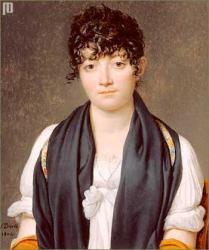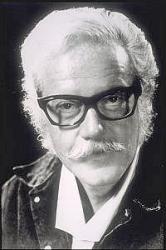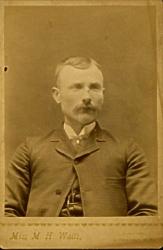Planning worship?
Check out our sister site, ZeteoSearch.org,
for 20+ additional resources related to your search.
- |
User Links
Person Results
Richard Proulx
1937 - 2010 Person Name: Richard Proulx, 1937-2010 Topics: Invitation To Christian discipleship/live in Christ Harmonizer of "SOMEBODY'S KNOCKIN' " in One Lord, One Faith, One Baptism Richard Proulx (b. St. Paul, MN, April 3, 1937; d. Chicago, IL, February 18, 2010). A composer, conductor, and teacher, Proulx was director of music at the Holy Name Cathedral in Chicago, Illinois (1980-1997); before that he was organist and choirmaster at St. Thomas' Episcopal Church in Seattle, Washington. He contributed his expertise to the Roman Catholic Worship III (1986), The Episcopal Hymnal 1982, The United Methodist Hymnal (1989), and the ecumenical A New Hymnal for Colleges and Schools (1992). He was educated at the University of Minnesota, MacPhail College of Music in Minneapolis, Minnesota, St. John's Abbey in Collegeville, Minnesota, and the Royal School of Church Music in England. He composed more than 250 works.
Bert Polman
Richard Proulx
Luise Reichardt

1779 - 1826 Person Name: C. Luise Reichardt Topics: Invitation to Discipleship Composer of "ARMAGEDDON" in The Worshiping Church Caroline Luise Reichardt Germany 1779-1826. Born in Berlin to middle class parents and musical composers, she received some formal education and musical training from her father and his friends, but also was self-taught. Her grandfather was Konzertmeister, and her father was Kapellmeister at the court of Frederick, the Great. Louise was musical and had a good voice. She played piano and sang. In 1800 four of her own compositions were published along with a collection of her father’s songs. The Reichardts entertained well-known literary figures of the day. She later used poetry from Phillip Ludwig Achim von Arnim in a collection of 12 songs she composed. In 1809 she settled in Hamburg, Germany, where she made a living as a singing teacher and composed music. She also organized and directed a women’s chorus. She did behind-the-scenes conducting of music when she could. She was known for her untiring efforts in the production of Handel choral works, translating and preparing texts and choruses to be conducted by male counterparts. She also translated the Latin works of Hasse and Graun into German. She played a significant role in the formation of the German choral movement, a driving force in 19th century musical nationalism. She composed 75+ songs and choral pieces in various styles and accompaniments. Her husband-to-be, Friedrich August Eschen, died suddenly on the eve before their wedding. Her second husband-to-be, a painter, Franz Gareis, also died before their wedding. She died at Hamburg, Germany.
John Perry
Luise Reichardt
Simeon Butler Marsh
1798 - 1875 Person Name: Simeon B. Marsh, 1798-1875 Topics: The Christian Life Call to Discipleship; Invitation; Jesus Love; Love; Surrender; Testimony Composer of "MARTYN" in African Methodist Episcopal Church Hymnal Simeon Butler Marsh USA 1798-1875. Born at Sherburne, NY, he was raised on a farm. A Presbyterian, he became a gifted organist and teacher. He sang in a choir at age seven and studied music at age 16. By age 19 he was teaching in the local singing schools in Geneva, NY, and had met hymnist, Thomas Hastings from Geneva, NY, who gave him much encouragement. He married Eliza Carrier, and they had a son, John, and a daughter, Jane. In 1837 he became publisher of the Amsterdam, NY, paper “Intelligencer” (later called ‘Recorder’), and ran it for seven years, even setting his own type. He moved back to Sherburne and founded the Sherburne News. He taught music to choirs and children for almost 30 years in and around the Albany Presbytery, and also served as a Sunday school superintendent for six years and a choir leader for three years. He set type for three juvenile books as well. For thirteen years he gave free music instruction to students in the Schenectedy area. In 1859 he returned to Sherburne and gave music instruction to large classes of men, women, and children. He wrote two cantatas: “The Savior” and “The king of the forest”. He wrote a number of hymns, but most have not survived over time. His wife died in 1873. He died at Albany, NY, and is buried in Schenectady, NY.
John Perry
Simeon Butler Marsh
Ralph Carmichael

1927 - 2021 Person Name: Ralph Carmichael, b. 1927 Topics: Invitation To Christian discipleship/live in Christ Author of "The Savior Is Waiting" in One Lord, One Faith, One Baptism
Ralph Carmichael
B. B. McKinney

1886 - 1952 Topics: Commitment; Discipleship; Invitation to Consecration; Jesus Christ Example Author of "Wherever He Leads I'll Go" in Baptist Hymnal (1975 ed) Pseudonyms--
Martha Annis (his mother’s maiden name was Martha Annis Heflin)
Otto Nellen
Gene Routh (his wife’s maiden name was Leila Irene Routh)
-----
Son of James Calvin McKinney and Martha Annis Heflin McKinney, B . B. attended Mount Lebanon Academy, Louisiana; Louisiana College, Pineville, Louisiana; the Southwestern Baptist Seminary in Fort Worth, Texas; the Siegel-Myers Correspondence School of Music, Chicago, Illinois (BM.1922); and the Bush Conservatory of Music, Chicago. Oklahoma Baptist University awarded him an honorary MusD degree in 1942.
McKinney served as music editor at the Robert H. Coleman company in Dallas, Texas (1918–35). In 1919, after several months in the army, McKinney returned to Fort Worth, where Isham E. Reynolds asked him to join the faculty of the School of Sacred Music at Southwestern Baptist Theological Seminary. He taught at the seminary until 1932, then pastored in at the Travis Avenue Baptist Church in Fort Worth (1931–35). In 1935, McKinney became music editor for the Baptist Sunday School Board in Nashville, Tennessee.
McKinney wrote words and music for about 150 songs, and music for 115 more.
--© Cyber Hymnal™ (www.hymntime.com/tch)
B. B. McKinney
Edward S. Ufford
1851 - 1929 Person Name: Edward S. Ufford, 1851-1929 Topics: The Christian Life Call to Discipleship; Conversion; Discipleship; Invitation Author of "Throw Out the Lifeline" in African Methodist Episcopal Church Hymnal
Edward S. Ufford
Skinner Chávez-Melo
1944 - 1992 Topics: God's Church The Church at Worship: Invitation to Discipleship Harmonizer of "PESCADOR DE HOMBRES" in Chalice Hymnal Skinner Chavez-Melo, an organist, conductor and composer who was music director at the St. Rose of Lima Roman Catholic Church in Manhattan, died on Saturday at New York Downtown Hospital. He was 47 years old and lived in Manhattan.
He died of spinal cancer, said his brother, Juan Francisco.
Mr. Chavez-Melo was born in Mexico City, but completed his musical studies in the United States, receiving degrees at Eastern Nazarene College and the Union Theological Seminary, and pursuing further studies at the Juilliard School and the Manhattan School.
He toured internationally as an organist and conducted orchestras in Mexico, Brazil and the United States. As a composer, he wrote works for organ, choir and orchestra, and contributed hymn settings to several published hymnals, including those of the United Church of Christ and Yale University. He also lectured and presented workshops on Hispanic church music.
Besides directing music at St. Rose, Mr. Chavez-Melo conducted the annual Singing Christmas Tree concerts at the South Street Seaport.
http://www.nytimes.com/1992/01/28
Skinner Chávez-Melo
C. Hubert H. Parry

1848 - 1918 Topics: Calling and Response; Calmness and Serenity; Discipleship and Service; Forgiveness from God; Jesus Christ Call of; Peace (Inner, Calmness, Serenity; Prayer; Repentance; Rest; Reverence/Wonder Before God; Service; Service Music Invitation to Prayer; Surrender; Trust Composer of "[Dear God, who loves all humankind]" in Voices United Charles Hubert Hastings Parry KnBch/Brnt BMus United Kingdom 1848-1918. Born at Richmond Hill, Bournemouth, England, son of a wealthy director of the East India Company (also a painter, piano and horn musician, and art collector). His mother died of consumption shortly after his birth. His father remarried when he was three, and his stepmother favored her own children over her stepchildren, so he and two siblings were sometimes left out. He attended a preparatory school in Malvern, then at Twyford in Hampshire. He studied music from 1856-58 and became a pianist and composer. His musical interest was encouraged by the headmaster and by two organists. He gained an enduring love for Bach’s music from S S Wesley and took piano and harmony lessons from Edward Brind, who also took him to the ‘Three Choirs Festival in Hereford in 1861, where Mendelssohn, Mozart, Handel, and Beethoven works were performed. That left a great impression on Hubert. It also sparked the beginning of a lifelong association with the festival. That year, his brother was disgraced at Oxford for drug and alcohol use, and his sister, Lucy, died of consumption as well. Both events saddened Hubert. However, he began study at Eton College and distinguished himself at both sport and music. He also began having heart trouble, that would plague him the rest of his life. Eton was not known for its music program, and although some others had interest in music, there were no teachers there that could help Hubert much. He turned to George Elvey, organist of St George’s Chapel, Windsor Castle, and started studying with him in 1863. Hubert eventually wrote some anthems for the choir of St George’s Chapel, and eventually earned his music degree. While still at Eton, Hubert sat for the Oxford Bachelor of Music exam, the youngest person ever to have done so. His exam exercise, a cantata: “O Lord, Thou hast cast us out” astonished the Heather Professor of Music, Sir Frederick Ouseley, and was triumphantly performed and published in 1867. In 1867 he left Eton and went to Exeter College, Oxford. He did not study music there, his music concerns taking second place, but read law and modern history. However, he did go to Stuttgart, Germany, at the urging of Henry Hugh Pierson, to learn re-orchestration, leaving him much more critical of Mendelssohn’s works. When he left Exeter College, at his father’s behest, he felt obliged to try insurance work, as his father considered music only a pastime (too uncertain as a profession). He became an underwriter at Lloyd’s of London, 1870-77, but he found the work unappealing to his interests and inclinations. In 1872 he married Elizabeth Maude Herbert, and they had two daughters: Dorothea and Gwendolen. His in-laws agreed with his father that a conventional career was best, but it did not suit him. He began studying advanced piano with W S Bennett, but found it insufficient. He then took lessons with Edward Dannreuther, a wise and sympathetic teacher, who taught him of Wagner’s music. At the same time as Hubert’s compositions were coming to public notice (1875), he became a scholar of George Grove and soon an assistant editor for his new “Dictionary of Music and Musicians”. He contributed 123 articles to it. His own first work appeared in 1880. In 1883 he became professor of composition and musical history at the Royal College of Music (of which Grove was the head). In 1895 Parry succeeded Grove as head of the college, remaining in the post the remainder of his life. He also succeeded John Stainer as Heather Professor of Music at the University of Oxford (1900-1908). His academic duties were considerable and likely prevented him from composing as much as he might have. However, he was rated a very fine composer, nontheless, of orchestrations, overtures, symphonies, and other music. He only attempted one opera, deemed unsuccessful. Edward Elgar learned much of his craft from Parry’s articles in Grove’s Dictionary, and from those who studied under Parry at the Royal College, including Ralph Vaughn Williams, Gustav Holst, Frank Bridge, and John Ireland. Parry had the ability when teaching music to ascertain a student’s potential for creativity and direct it positively. In 1902 he was created a Baronet of Highnam Court in Gloucester. Parry was also an avid sailor and owned several yachts, becoming a member of the Royal Yacht Squadron in 1908, the only composer so honored. He was a Darwinian and a humanist. His daughter reiterated his liberal, non-conventional thinking. On medical advice he resigned his Oxford appointment in 1908 and produced some of his best known works. He and his wife were taken up with the ‘Suffrage Movement’ in 1916. He hated to see the WW1 ravage young potential musical talent from England and Germany. In 1918 he contracted Spanish flu during the global pandemic and died at Knightsscroft, Rustington, West Sussex. In 2015 they found 70 unpublished works of Parry’s hidden away in a family archive. It is thought some may never have been performed in public. The documents were sold at auction for a large sum. Other works he wrote include: “Studies of great composers” (1886), “The art of music” (1893), “The evolution of the art of music” (1896), “The music of the 17th century” (1902). His best known work is probably his 1909 study of “Johann Sebastian Bach”.
John Perry
C. Hubert H. Parry
John S. Norris

1844 - 1907 Topics: God's Church The Church at Worship: Invitation to Discipleship Composer of "NORRIS" in Chalice Hymnal Rv John Samuel Norris United Kingdom/USA 1844-1907. Born at West Cowes, Isle of Wight, UK, he emigrated to the US when young and attended school in Canada. He was ordained a Methodist minister in Oshawa, ON, in 1868. Over the next decade he pastored at churches in Canada, NY, and WI. He switched to the Congregationalist denomination in 1878, serving churches in Mondovi, Shullsburg, and Hixton, WI, and Grand Rapids, MI. From 1882 -1901 he held pastorates at Ames, Webster City, Parkersburg, Peterson, and Tripoli, IA.. He died in Chicago, IL.
John Perry
John S. Norris
Alexcenah Thomas
1857 - 1910 Topics: The Christian Life Call to Discipleship; Discipleship; Invitation; Missions; Youth Author of "Hark! 'Tis the Shepherd's Voice I Hear" in African Methodist Episcopal Church Hymnal
Alexcenah Thomas


 My Starred Hymns
My Starred Hymns

